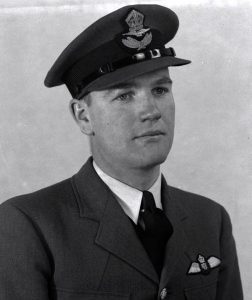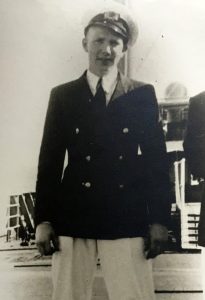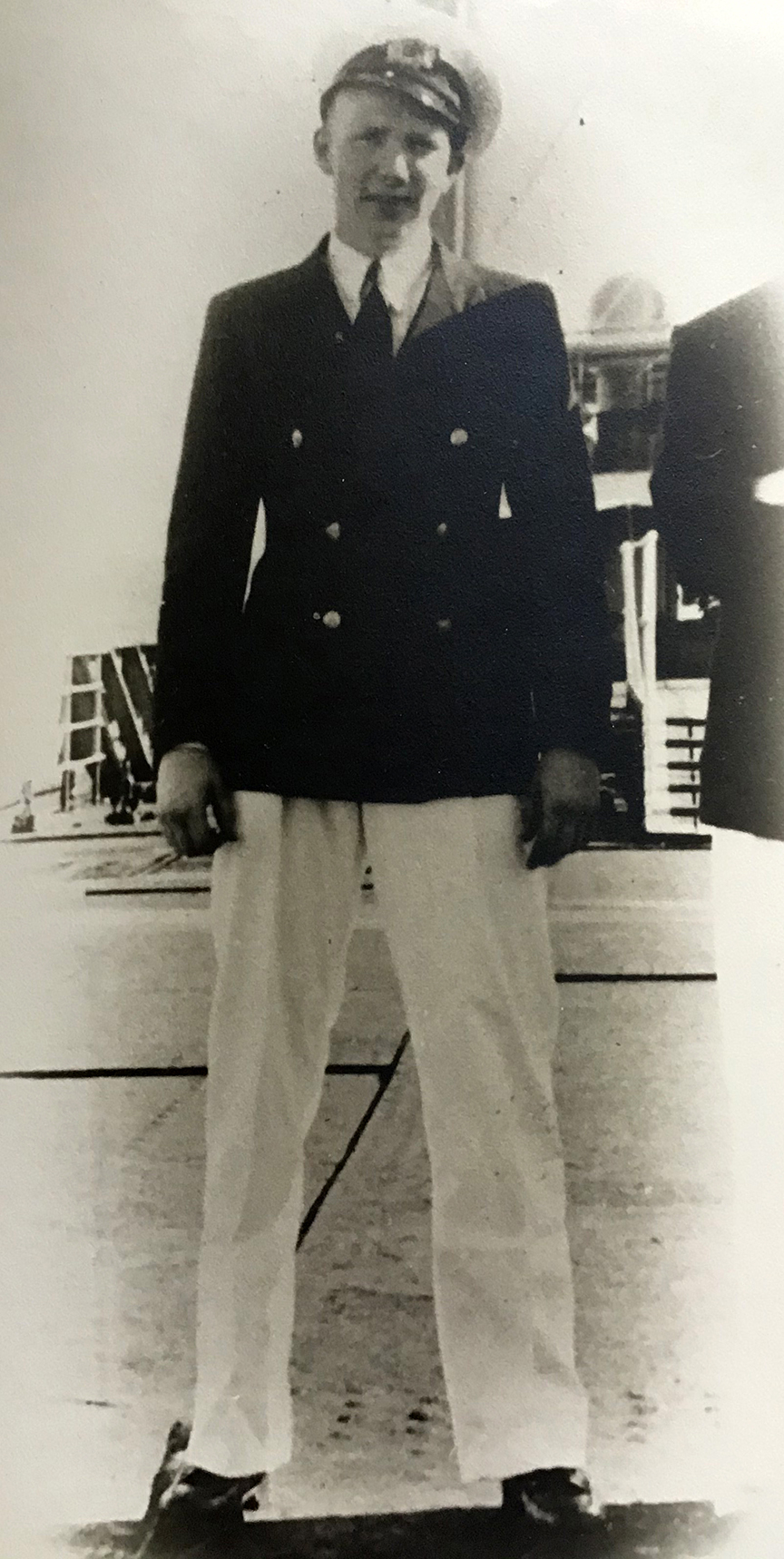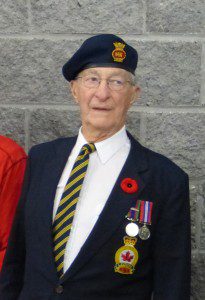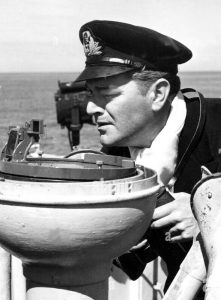
Commander George Ericson is crouched on the bridge of his corvette warship. He’s peering through a sighting device, lining up his counterattack against an enemy he can’t see, a submerged U-boat in the Atlantic waters directly ahead of him.
“What’s it look like now, Number One?” Ericson calls to his first officer, who is on a sonar device.
“It’s the firmest contact we’ve ever had,” the sonar operator shouts back from below deck.
There’s sudden consternation on Cmdr Ericson’s face. Merchant sailors whose ship has just been torpedoed are thrashing about in the water. They’re shouting for help. “There’s men in the water just about there,” Ericson says.
“Well, there’s a U-boat just underneath them.”
